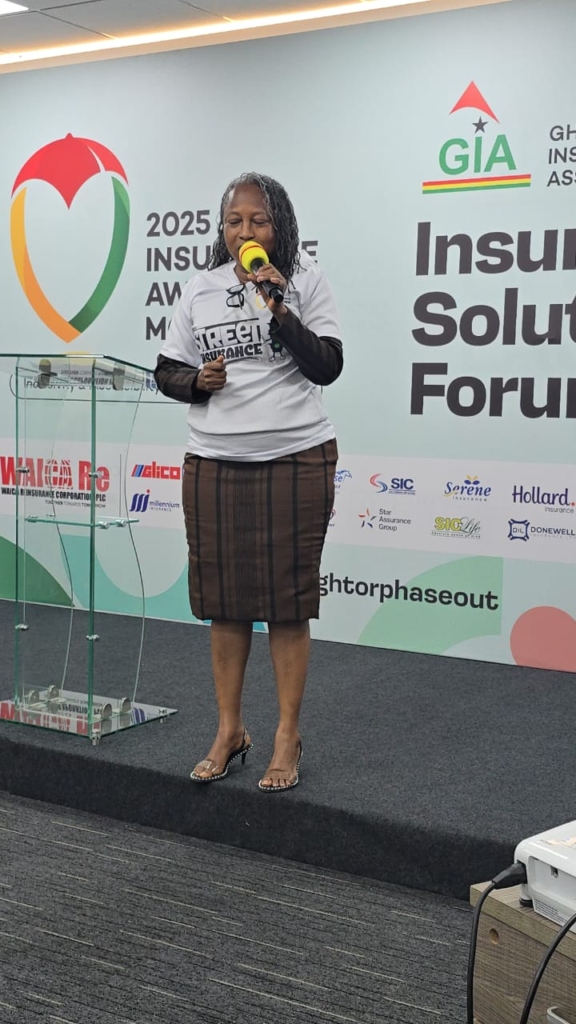Ghana’s non-life insurance sector is bracing for sweeping changes following the introduction of Value Added Tax (VAT) on general insurance products.
The move, part of a broader government strategy to expand the tax base and boost domestic revenue, has sent ripples through the industry, prompting urgent calls for preparedness and compliance. Deloitte Ghana is leading that call, warning insurers to act swiftly or risk costly penalties.
As of July 2025, all non-life insurance products—excluding motor insurance—are now subject to VAT and related levies, following the enactment of the VAT (Amendment) Act 2023 (Act 1107). The total VAT rate applied stands at 21%, but due to the calculation method used, the effective rate rises to 21.9%.
This policy shift marks a new era for the insurance industry, where firms must not only pass on the cost to consumers but also align their systems and operations to accommodate the new tax regime.
At the heart of this transformation is the need for a technological and administrative upgrade, a point strongly emphasized by Wisdom Kpano, Partner for Tax and Legal at Deloitte Ghana.
Speaking at a recent insurance forum hosted by the Ghana Insurance Association (GIA), Mr. Kpano cautioned that firms must establish a Robust System Readiness Assessment. This process, he said, is essential for identifying the specific updates needed to accurately reflect VAT in their accounting and compliance structures.
“Enterprise Resource Planning (ERP) systems must be reconfigured to reflect the VAT charges correctly. Without this, companies may fail to apply the correct taxes and could be liable for back payments and penalties.”
Wisdom Kpano
He further called on insurers to implement real-time reporting tools that allow for regular compliance checks and risk identification. These tools should feed directly to senior management, ensuring that non-compliance doesn’t creep in due to oversight or technical gaps.

Strengthening Compliance and Internal Controls
Beyond technical upgrades, Mr. Kpano advised firms to strengthen internal controls and document VAT processes thoroughly. He urged insurers to assign clear responsibilities within their compliance teams to avoid ambiguity and ensure that every department is aligned with the new requirements.
“VAT is not just a finance issue—it affects operations, IT, legal, and even customer engagement. That’s why firms must take a holistic approach to implementation.”
Wisdom Kpano
Deloitte’s advice comes at a critical juncture as many insurance companies in Ghana, especially smaller players, may struggle to meet these requirements within tight timelines.
Joining the call for action was Dr. Abiba Zakariah, Commissioner of the National Insurance Commission (NIC), who also addressed participants at the GIA forum. She encouraged non-life insurance firms to fully embrace the new VAT directive as a national obligation but stressed the need to deepen consumer trust in the process.
“Insurers must ensure that the VAT implementation does not lead to customer dissatisfaction. It’s important to communicate clearly with policyholders and maintain transparency.”
Dr. Abiba Zakariah
She believes this is an opportunity for the industry to raise its public profile, improve service delivery, and contribute meaningfully to national development through enhanced revenue collection.

Balancing Revenue Mobilization and Sector Growth
The government’s decision to apply VAT to non-life insurance products is part of an aggressive push to widen the tax net and improve domestic revenue mobilization. However, the move has sparked debate over its potential impact on insurance penetration, which remains relatively low in Ghana compared to other sub-Saharan African countries.
Industry analysts caution that without effective communication and smooth implementation, the VAT could become a disincentive for consumers—especially for products like fire, travel, or health insurance.
But with guidance from advisory firms like Deloitte and regulatory backing from the NIC, stakeholders hope the transition will be orderly, transparent, and constructive for all parties involved.
For Ghana’s non-life insurers, the VAT regime is no longer a looming threat—it is reality. With a 21.9% effective tax rate, firms must act decisively to upgrade their systems, educate their staff, and engage their clients.
READ ALSO: Ghana’s Mid-Year Budget Review Slated For July 24, 2025























